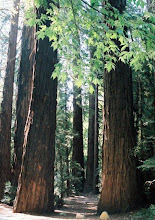Away in a manger, no crib for his bed,
The little Lord Jesus laid down his sweet head;
The stars in the sky looked down where he lay,
The little Lord Jesus asleep in the hay.
The cattle are lowing; the poor baby wakes,
But little Lord Jesus no crying he makes.
I love you Lord Jesus, look down from the sky
And stay by my cradle till morning is nigh.
In the second verse, as the singers, we ask Jesus to stay with us through the dark and scary night. The carol is not only a song about the nativity, the birth of Jesus in the stable; the carol is also a prayer that Jesus would stay with us, chase fear away and keep us safe.
The third verse is even more of a prayer:
"Be near me, Lord Jesus; I ask you to stay
Close by me forever and love me, I pray.
Bless all the dear children in your tender care
And fit us for heaven to live with you there."
These last days have shattered the bubble of safety we try to keep around children. We wish and pray that our children would never have to know real terror and fear, forgetting that even everyday things and situations can make them afraid from monsters under the bed, having the right answer in school, to facing a bully. Talking to our children about times when we become afraid and giving them tools to use is part of helping them to be resilient.
Prayer is one of the most powerful tools we have against dark and fearful times.
There are many ways and kinds of prayer. Like the carol, we can sing our prayer; many hymns are sung prayers. Written out prayers that we read or memorize are another way to pray. May children learn the bedtime prayer, "Now I lay me down to sleep, I pray the Lord my soul to keep. If I should die before I wake, I pray the Lord my soul to take." It also is a prayer of asking Jesus to stay with us and keep us safe. Sometimes, these kinds of prayers have many words.
We can also just pray by telling God what we are feeling or what we need in whatever words we have at the moment. They can be informal or formal, lots of words or just a few. There are also times when all we have is one word - help. God hears even one-word prayers and is with us.
But sometimes, great fear and/or grief are so overwhelming that we can't find any words to say. The Bible tells us that at those times, perhaps the most powerful, God hears our no-word prayers. Paul writes, "Likewise the Spirit helps us in our weakness... that very Spirit intercedes with sighs too deep for words. " (Romans 8:26) When our hearts are too full or when they feel completely empty, those are the times that God hears us and holds us most deeply; even when all we have are questions or anger.
Since these deepest "no-word" prayers come through the Holy Spirit, like all prayers, they do not depend on our experience of prayer. They can be our first prayer or our last. God hears and holds us in love. And the promise is that there is nothing terrible or strong enough to take us away from that love.
In these last few days before Christmas, it is an even more important time right now to remember that the Jesus we wait for is the light of the world; the light that came into the world and that darkness has not and cannot overcome it. God's love wins.
"For I am convinced that neither death, nor life, nor angels, nor rulers, nor things present, nor things to come, nor powers, nor height, nor depth, nor anything else in all creation, will be able to separate us from the love of God in Christ Jesus our Lord." Romans 8:38-39
(Taken from last Sunday's children's sermon)


















